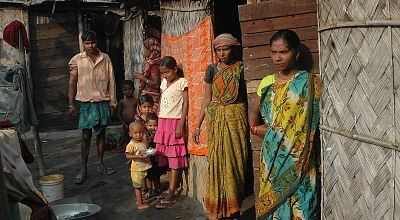Religious Conversion Provisions Struck Down in India
An law that oppressed Christians in India has been overturned.
The high court of India’s Himachal Pradesh province struck down legal provisions that restricted Christian conversions. Part of the improperly named “Freedom of Religion Act,” the provisions required a magistrate to be notified of all religious conversions and that they be publicly recorded 30 days in advance. The law made exceptions for those reverting to their original faith, typically understood as Hinduism.
If a new convert failed to give the legal notice, the law provided for prosecution and legal sanctions. Converts to Christianity in India are often subject to retaliation, violence and harassment, and the public notice provision was considered to be fueling the problem.
“No one should be targeted for violence, inhumane treatment, and religious discrimination simply because of their faith,” said Alliance Defending Freedom (ADF) Legal Counsel Tehmina Arora, who is based in New Delhi. “The law should not give aggressors a legal way to fuel religious persecution of new Christians. The court was right to strike down this unconstitutional law, which was clearly designed to discourage conversion to faiths like Christianity.”
ADF allied attorneys representing Evangelical Fellowship of India argued that the law, which discouraged Christian conversion and favored the majority Hindu religion, was unconstitutional. A two-member panel of the court agreed.
In its ruling in Evangelical Fellowship of India v. State of Himachal Pradesh, the High Court of Himachal Pradesh found that “each and every citizen of this country has a right not only to follow his own beliefs but also has a right to change his beliefs.”
The court continued, “A person’s belief or religion is something very personal to him. The State has no right to ask a person to disclose what is his personal belief. The only justification given is that public order requires that notice be given. We are of the considered view that in case of a person changing his religion and notice being issued to the so called prejudicially affected parties, chances of the convertee being subjected to physical and psychological torture cannot be ruled out. The remedy proposed by the State may prove to be more harmful than the problem.”

